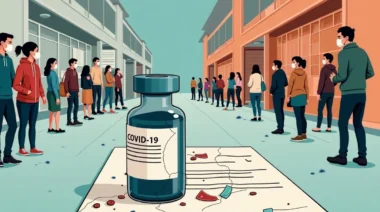Table of Contents
- What Is a Certified Medication Tech?
- Why Choose a Career as a Medication Tech?
- Key Steps to Become a Certified Medication Tech
- Where Can a Certified Medication Tech Work?
- Skills You Need to Succeed as a CMT
- Certified Medication Tech vs. CNA: What’s the Difference?
- Salary Expectations for Certified Medication Techs
- Continuing Education and Career Growth
- Pros and Cons of Being a CMT
- FAQs
- Conclusion
What Is a Certified Medication Tech?
Certified Medication Technician (CMT), sometimes called a Medication Aide, is a skilled healthcare provider who helps give patients their prescribed medicines, usually in places like assisted living centers or nursing homes. living facilities, group homes, and sometimes even hospitals. They work under the supervision of nurses or licensed healthcare professionals and play a key role in ensuring patients receive their medications safely and on time.
Common Duties of a CMT:
- Administering oral and topical medications
- Monitoring patient responses and documenting effects
- Reporting any side effects or changes to nurses
- Helping patients understand their medications
- Maintaining accurate medication records
Why Choose a Career as a Medication Tech?
As the population continues to age, the need for trained medication aides is rising, making this role more important in the expanding healthcare industry.. Here are some compelling reasons why becoming a Certified Medication Tech could be a smart career move:
- Quick Entry Into the Workforce: Most CMT programs take just a few weeks to a couple of months to complete.
- Growing Job Market: According to the U.S. Bureau of Labor Statistics, healthcare support roles are projected to grow much faster than average through 2032.
- Meaningful Work: You’ll be directly involved in patient care, making a daily impact on people’s lives.
- Career Advancement: It’s a great stepping stone toward becoming a Licensed Practical Nurse (LPN) or Registered Nurse (RN).
Key Steps to Become a Certified Medication Tech
Getting certified as a Medication Technician involves training, passing an exam and meeting your state’s licensing requirements. Here’s a step-by-step guideline:
1. Meet the Basic Requirements
Most states require candidates to:
- Be at least 18 years old
- Hold a high school diploma or GED
- Be a Certified Nursing Assistant (CNA) or have equivalent healthcare experience
2. Enroll in a Medication Technician Training Program

Find a state-approved training program at a community college, vocational school, or healthcare facility.
What You’ll Learn:
- Medication classifications
- Safe administration techniques
- Drug interactions and side effects
- Legal and ethical responsibilities
- Documentation and reporting
These programs typically last between 4 to 12 weeks, depending on your state.
3. Pass the Certification Exam
Once you complete the training program, you’ll need to pass a state-approved exam to earn your certification. This usually includes:
- A written test covering laws, medication types, and safety.
- A skills test where you show how you give medication properly.
Once you pass, you’re officially a Certified Medication Tech!
Where Can a Certified Medication Tech Work?
Certified Medication Technicians often serve in environments that provide long-term care for individuals who need regular medical support. These include:
- Nursing Homes
- Assisted Living Facilities
- Group Homes
- Rehabilitation Centers
- Hospices
You rarely find CMTs in hospitals, as those settings typically rely on registered nurses and licensed practical nurses to handle all medications.
Skills You Need to Succeed as a CMT
To be great at this job, you don’t just need knowledge, you also need a caring heart and a sharp eye. Here are the most useful skills:
1. Attention to Detail
It’s crucial to give the correct medication, in the proper amount, to the intended patient at the scheduled time because even a minor error can cause serious consequences.
2. Good Communication
You’ll talk with nurses, doctors, patients, and sometimes family members. Clear communication helps avoid errors.
3. Patience and Compassion

You may work with older or sick people who are scared or confused. Being kind and patient helps build trust.
4. Time Management
You often care for many people at once, so staying organized is key to doing the job well.
Certified Medication Tech vs. CNA: What’s the Difference?
While CNAs assist with essential daily tasks like bathing, dressing, and feeding, CMTs receive additional training that allows them to safely give medications to patients.
Many CNAs become CMTs to increase their responsibilities, boost their earning potential, and improve their job prospects.
| Role |
Key Duties |
Training Time |
Average Pay |
| CNA | Basic care, vitals, hygiene | ~4–12 weeks | $30,000–$35,000/year |
| CMT | Administer meds, monitor side effects | ~4–12 weeks | $35,000–$45,000/year |
Salary Expectations for Certified Medication Techs
Salaries vary by location, experience, and workplace. On average, Certified Medication Technicians in the U.S. can expect to earn:
- Entry-level: $15–$18/hour
- Experienced: $20–$25/hour
- Annual average: ~$38,000–$45,000
Continuing Education and Career Growth
Most states require Medication Techs to renew their certification every 1–2 years, including continuing education credits.
But don’t stop there. You can grow into roles like:
- Licensed Practical Nurse (LPN)
- Registered Nurse (RN)
- Medical Assistant
- Healthcare Administrator
Pros and Cons of Being a CMT
Pros
- Quick Entry: You can start working within months.
- Rewarding Work: You help people feel better every day.
- Flexible Schedules: Day, night, and weekend shifts available.
- Pathway to Grow: You can move up to nursing roles.
Cons
- Emotionally Demanding: Watching patients suffer can be tough.
- Physically Tiring: Long hours on your feet.
- Repetitive Tasks: Giving meds and charting can feel routine.
- Liability: You must be very careful to avoid errors.
Still, many CMTs find the job deeply meaningful and enjoy making a real difference in patients’ lives.
FAQs
Q1. Can I become a CMT without being a CNA first?
In most states, you must be a CNA before becoming a Medication Tech. Check with your state’s licensing board for specifics.
Q2. Is online training available?
Certain programs provide a mix of online classes and in-person training, but fully online certification is uncommon because the role requires practical, hands-on experience.
Q3. What’s the typical time frame to become a Certified Medication Technician?
Most programs can be completed in 1–3 months, depending on your state and schedule.
Conclusion
If you’re someone who enjoys helping others, works well under pressure, and is looking for a quick start in healthcare, becoming a Certified Medication Tech might be a great fit. It doesn’t require a college degree, and the training is affordable and short. Plus, it opens doors to bigger roles in healthcare if you choose to keep learning. CMTs may not always be in the spotlight, but they are the backbone of care teams, especially in settings like nursing homes and assisted living. Their daily work brings comfort, healing, and peace of mind to patients and their families.








